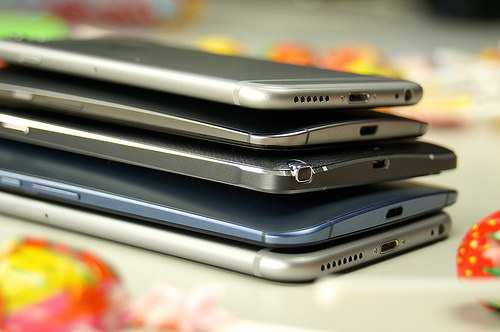When you take a train or you are waiting for the bus, when you are waiting in line at the supermarket or if you simply look around yourself in your hometown, be it Helsinki or Cape Town, Los Angeles or Tokyo, you will see most of the faces lighted up by a white-bluish light. Almost all of us today have a smartphone through which we largely communicate with our friends, family and colleagues, search the net, read the news and so on. Thanks to the technological revolution, today smartphones are present in almost all the pockets and bags of people around the world. It might be argued that there are only two categories which are less likely to possess a smartphone: children – although many of them can easily use one – and elderly people – although some of them learnt to use it –.
On the one hand technology has improved and accelerated processes which only twenty years ago where long and expensive, on the other, the use of technological devices combined with the use of social media has become viral, yet this is not always a symptom of a positive situation. A recent report by la Repubblica shows how social media in general, and Facebook in particular, can become very dangerous. For some people the constant connection to Facebook can be a first sign of depression: the less such people receive a “like” or a “retweet”, the more they feel lonely and socially excluded and the more they feel the need to be connected. Paraphrasing what Professor Ferri maintains about the wrong use of social media, such people tend to perceive their real and physical presence in the world only when they receive approval by their virtual friends and the risky consequence of this behaviour is their increasing obsession with the social network, which increases the time in which they remain connected to Facebook, creating a real dependence.
I experienced something slightly similar when I first created my Facebook account in 2008. At that time Facebook was a complete revolution, a new platform where you could share videos, pictures, ideas and moods potentially with anyone and my enthusiasm was such that I remained connected almost all day long. But I soon discovered that it was a useless practice which made me waste too much time, therefore, I reduced the amount of time I spend on Facebook and now I try to use the internet only when I really need it.
I fall in the category of neither children nor elderly people, but I still don’t have a smartphone and I am perfectly happy with it. I don’t consider myself a retrograde, backwards or a dinosaur and generally speaking I have nothing against innovation and new technologies when they can really help people, simplify processes which otherwise would be very long or impossible, when they make you save time and perhaps even Nature. One simple example of all this is the email: it simplifies the process of written communication, it allows you to save time and money and it avoids the use of paper.
Nevertheless, for the lifestyle I lead, I don’t feel the need to have a smartphone. My friends gave up on me about this as they still can’t understand how I cope with the different every-day activities and tasks without the aid of a smartphone. But I do it well and with no problems: I check my emails twice a day from my computer and when I have to communicate with friends I text them an sms, which is usually very short and mostly has to do with the place and time to meet, any other kind of communication is made face to face since I find it the best way. As regard to social media, similarly to emails, I check my Facebook account two or three times a day. I find Facebook quite convenient and useful when I need to say hi to friends who live abroad or who moved to distant cities.
I am perfectly aware that Google Maps can save you when you get lost in a place you have never been or that time appears to run faster when you are waiting for the bus or travelling on a train, but I prefer to ask people for information and look at the world around me or think or read a book. I am not trying to change or convert the habits of any of you, just please, try to look in each other’s eyes when you having dinner with your friends.

